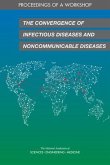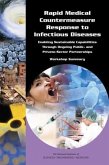Noncommunicable diseases (NCDs) are the leading cause of death in the Americas, accounting for 81% of all deaths in the Region in 2016. Of the estimated 5.5 million NCD-related annual deaths, 39% of these are premature deaths (occurring between the ages of 30-70) and are largely a result of the four main NCDs: cardiovascular diseases, diabetes, cancers, and chronic respiratory diseases. NCDs and related premature deaths can be significantly reduced through government policies that prevent, treat, and control these diseases. To monitor countries' capacities to address NCDs, including progress and trends over time, various tools are implemented, including the World Health Organization Country Capacity Survey (WHO-CCS). The survey captures information related to NCD infrastructure, policies, surveillance, and health systems. Conducted in 2001, 2005, 2010, 2013, and in 2017, this 6th edition of the CCS incorporates new validation processes to verify country responses through the submission of official policy documents and a data comparison to global health databases. These protocols were introduced to enhance data quality and provide an accurate reflection of the country capacity to combat NCDs. It is important to recognize that for the first time in the Americas, 100% of the Member States (35 countries) and 76% of the Associate Members and Participating States (13 of 17 countries) completed the survey. As such, the 2017 CCS provides a comprehensive assessment of the entire Region and demonstrates the political commitment of the Americas to reduce the burden of NCDs. This report presents results of the 2017 CCS and offers an updated review of progress in the Region of the Americas including gaps and recommendations for improvement to strengthen countries' capacities to address NCDs and their risk factors. While advancements have been made, without an acceleration of commitments and significant investments, it is anticipated that some countries in the Americas will not meet their global targets.








